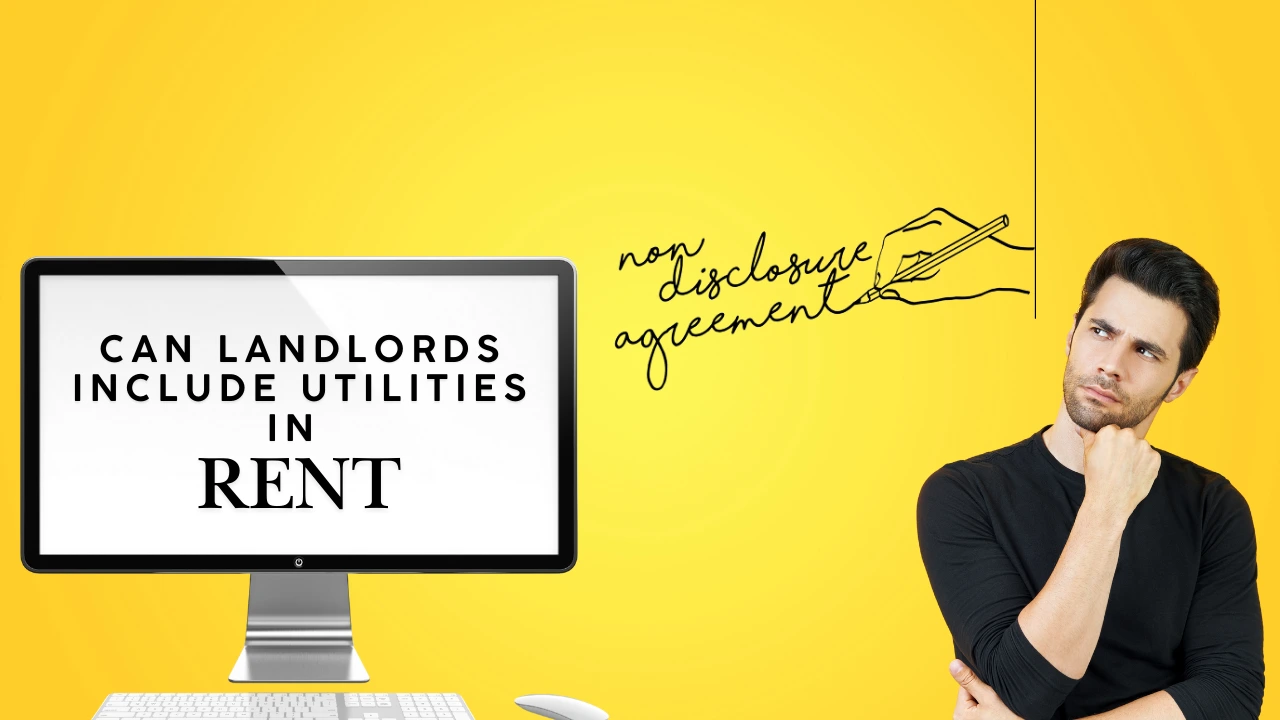Can Landlords Include Utilities in Rent Without Disclosure?.In the rental landscape, utilities often stir up more debate than the rent itself. While a landlord may think bundling water, electricity, or internet into the monthly rent is convenient, the bigger question is can they do this without telling tenants?
The short answer is No, in most jurisdictions, transparency is legally and ethically mandatory. If utilities are part of the rent, this must be disclosed in the lease. Otherwise, landlords risk disputes, legal headaches, or even financial penalties.
Can Landlords Include Utilities in Rent Without Disclosure?-Overview
| Utility Type | Disclosure Required? |
| Water | Yes – usage varies, must be clear |
| Gas | Yes – seasonal costs, disclose always |
| Electricity | Yes – metered, must be written |
| Internet & Cable | Yes – optional but if bundled, disclose |
| Trash/Other Fees | Recommended – avoids disputes |
Why Utility Disclosure Matters
Utilities are not just background expenses as they directly shape living costs. A tenant’s ability to plan their monthly budget hinges on clarity. Hidden charges or vague “included utilities” blur trust and can result in complaints, withheld payments, or even litigation.
- Tenants need predictability: Hidden inclusions may seem like a perk, but ambiguity often creates suspicion.
- Laws demand clarity: Many states require written disclosure of what the rent covers.
- Conflicts are costly: A lack of transparency can snowball into tenant turnover or legal disputes.

The Legal Lens
Almost all U.S. rental laws require landlords to disclose what is included in rent. The principle comes from the Implied Warranty of Habitability as landlords must provide a habitable space, including basic utility access. However, who pays must be spelled out in the lease. Failing to disclose can lead to:
- Lease violations: Tenants may argue that hidden costs alter the rental agreement.
- Regulatory penalties: Some states impose fines for nondisclosure.
- Tenant remedies: Rent withholding, early termination, or even lawsuits.
Common Utilities and Disclosure
Every utility has its quirks. Here is a deeper dive:
Water
- Average household bill: ~$104/month
- Disclosure is vital because overuse can inflate costs. Landlords often set usage caps in the lease to protect themselves.
Gas
- Average U.S. bill: ~$82/month
- Seasonal fluctuations mean transparency is non-negotiable. If bundled, tenants should know upfront.
Electricity
- One of the most variable utilities (~$1,380 annually
- Since it’s metered per unit, undisclosed bundling may feel unfair.
Internet & Cable
- Average combined bill: ~$217/month
- Not legally essential but highly demanded by younger renters. If offered, it must be written clearly to avoid disputes.
Comparative Table
This next table compares scenarios of disclosing vs. not disclosing utilities.
| Scenario | If Utilities Are Disclosed | If Utilities Are Hidden |
| Tenant Budgeting | Predictable, stable, builds trust | Confusion, sudden shocks |
| Landlord Reputation | Transparent, competitive edge | Risk of complaints, negative reviews |
| Legal Standing | Protected in disputes | Vulnerable to lawsuits |
| Financial Outcome | Can justify higher rent | Potential revenue loss from disputes |
Pros & Cons of Bundling Utilities
Landlords often ask whether including utilities in rent is worthwhile. Here is the balanced view of it:
| Pros | Cons |
| Simplifies billing (one payment) | Risk of overuse by tenants |
| Attractive to short-term renters | Landlord bears cost spikes |
| Can justify premium rent | Requires careful calculation |
| More control over service providers | Added administrative responsibility |
Can a Landlord Include Utilities Without Disclosure?
Technically no. While a landlord could pay utilities silently and never mention it, this omission could backfire. Imagine a tenant assumes they must pay the electric bill separately, then finds out months later it was included. Confusion leads to mistrust.
In essence:
- If utilities are bundled → must be in writing.
- If utilities are the tenant’s responsibility → must be in writing.
Best Practices for Landlords
- Always use written disclosure: Clearly define in the lease what’s included.
- Set consumption caps: For utilities like water or gas, specify limits to prevent overuse.
- Factor costs into rent smartly: Review average usage before setting rates.
- Stay compliant with local laws: Some cities have stricter disclosure rules than state laws.
- Communicate openly: A tenant who trusts you is less likely to dispute minor issues.
Hybrid Approaches
Some landlords adopt a middle path:
- Partial inclusion: Cover basics like water and trash but leave electricity to tenants.
- Flat fee model: Tenants pay a fixed extra charge for utilities, disclosed in the lease.
- Utility caps: Rent includes utilities up to a certain threshold; tenants pay excess.
Final Thoughts
The answer to “Can landlords include utilities in rent without disclosure?” is clear: No, they can’t and they should not. Transparency protects both sides. Landlords gain credibility, tenants gain clarity, and everyone avoids unnecessary conflict. Bundling utilities can be a great marketing tool, but only when paired with honest disclosure. Hidden costs or silent inclusions are a shortcut to disputes, negative reviews, and possibly legal action.
FAQs for Can Landlords Include Utilities in Rent Without Disclosure?
Can a landlord legally hide utility costs in rent?
No, as the renters must know exactly what their payment covers. Hidden inclusions are risky and often unlawful.
Is the internet considered a utility landlords must disclose?
Not legally required like water or electricity, but if bundled, it must still be stated in the lease.
What happens if utilities are not disclosed?
Tenants can dispute charges, break the lease early, or take legal action depending on local laws.
